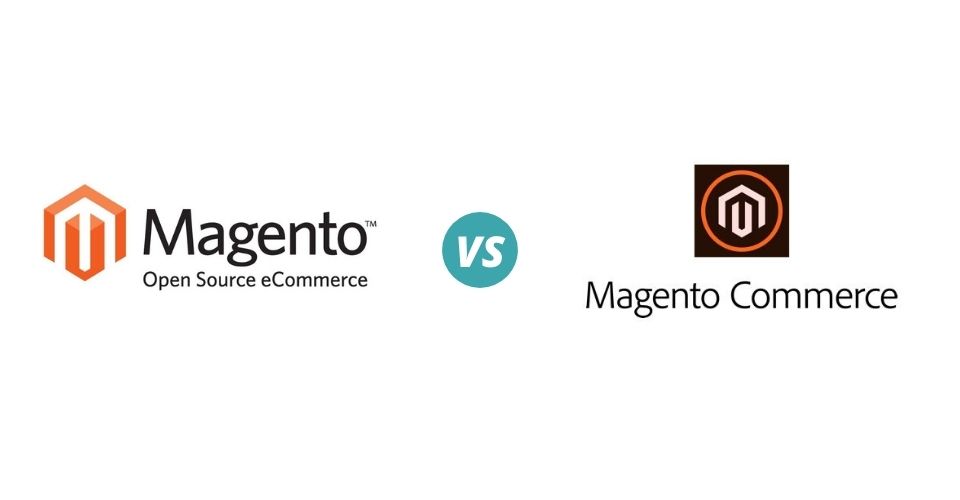With a global presence in the e-commerce industry, Magento has built up a formidable reputation as one of the world’s leading e-commerce platforms. In 2020, Magento’s global e-commerce sales amounted to $224 billion, powering 1.2% of the sites on the Internet.
Since its inception, there have been 2 editions of Magento available: Magento Open Source and Magento Commerce. In this blog, we’ll go through some of the key differences between these two options, so you can decide which edition is right for your business.
Overview
Overview
Magento Open Source

Previously known as Magento Community, Magento Open Source is a free self-hosted commerce platform with robust features. This edition has long been a favorite choice for small and medium businesses who want a feature-rich and scalable platform to compete with big names. Unlike a SaaS model that locks you into a fixed roadmap, Magento Open Source users can freely make configuration adjustments to the software to meet their needs.
Magento Commerce

Magento Commerce, formerly Enterprise Edition, is the paid version of Magento that allows merchants to access many advanced features and more customization opportunities. The edition also comes with updates and 24/7 support from Adobe, who owns Magento. Magento Commerce is perfect for B2B enterprises with high customer traffic, large product catalogs, or high business complexity.
Feature comparison
At the fundamental level, the codebase for both Magento Open Source and Magento Commerce remains the same. However, some additional features are only available in the Commerce edition.
Performance
Commerce outweighs Open Source when it comes to performance. It is more agile, leaner, and more extendable. This is done through optimized databases using leaner versions of the code. Magento Commerce also includes Fastly, which is a Content Delivery Network extension that efficiently serves up content through caching. This indicates faster pages and content loading and higher revenue at the same time.
Additionally, Magento Commerce comes with New Relic, which is a performance monitoring system to ensure everything is optimized by flagging things that may slow down the system. You’ll be able to view everything in real-time without any delay in fixing when they emerge.
►►►► Please visit our products: digital banking, situation analysis, Shopify markets, supply chain operations management, fintech ai, Multi Store POS, Woocommerce POS, Mobile POS, White label POS, Reseller POS, Beauty Supply Store POS, POS System for Retail and Vape shop POS
Catalog Management
The catalog permission feature allows retailers to choose specific categories to engage with a specific group of customers. In Magento Open Source, the Catalog Management is simplified with multiple visual tools while the Commerce edition has a more advanced one.

Magento Commerce follows the ‘Build and Sell’ pattern so that merchants don’t have to worry about the limits. It is capable of managing large catalogs, up to 20,000 products. Merchants may use Magento Visual Merchandiser to simplify product sorting in a visual mode, where all products are classified as a tile on a grid.
With Magento Commerce, you can assign various categories with different pricing and items. This makes it feasible for B2B sellers who deal with both retail and wholesale customers. Depending on your target audience, you can set different pricing for different products.
Marketing
While both Magento Open Source and Magento Commerce include basic SEO boosting functions such as meta descriptions and custom URLs, there are some unique marketing features in the Commerce edition:
- Advanced customer segmentation
- Targeted content
- Customer loyalty system

You won’t have to contact the developers every time you need a landing page to promote a sale or a new product line. Magento Commerce makes content management simple with Page Builder, which is a drag-and-drop interface including instant preview and in-context text editing. Users can easily add visual effects and schedule content to go live with staging and preview functionality.
Furthermore, the Business Intelligence tool enables you to quickly access data from a variety of sources, compile it into detailed reports, and derive new marketing insights.
Extensions & Add-ons
The Commerce edition falls short under this category as the Open Source edition is more compatible with any third-party extensions as per the need of the sellers. Due to its feasible customization abilities, the Magento Open Source version is perfect for tech-nerdy developers.
In the Open Source edition, you can use a variety of highly customized extensions. This Magento version is your best fit if you want to build and run your shop according to your needs and keep changing it as time and demands change.
Pricing

Even though Magento Open Source is available to download for free, it requires you to undergo updates, development, and integrations from time to time. And those will be the upfront costs, plus, you’ll have to factor in the expenses of running an on-premise website.
Magento Commerce is more expensive because it is more powerful and capable compared to Open Source. The license will vary depending on the range of your sales. For example, if your revenue is less than 1 million, you’ll be charged around $22,000.
To conclude
While choosing a suitable Magento edition, it’s recommended that you should carefully consider all aspects of your business. Whichever version you choose, rest assured that you’ll have an edge over your competitors in the market.
ConnectPOS is a leading POS solution for omnichannel retailers. Our system is compatible with both Magento Open Source and Magento Commerce, enabling you to open up new possibilities for your business. Ring us up for more details!
